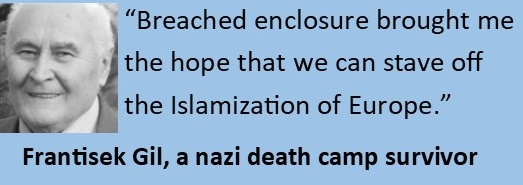The war without borders has affected all sectors. In the ideological sphere, it has pulled on the tried and tested scarf of the struggle between absolute Good and absolute Evil. In the informational sphere, it boldly crosses the boundaries previously guaranteed in democracies by freedom of speech and opinion. In the field of art, it has taken the form of efforts to deny the existence of one of the world’s cultural currents, and in the field of sport it has resorted to segregation, which we have known from a completely different context. Despite bans on participation in world exhibitions, Russian dogs and cats are also involved in total segregation.
There are no limits to the war. More and more supplies of weapons reliably ensure its continuation and open the door wide to its escalation.
This is a truly global war. If only because it is being decided on all the aforementioned fronts on the further development of globalisation. It is not so much a question of whether globalisation will continue or whether it will be stopped. There are things that simply cannot be stopped. Rather, the decision is whether globalisation will continue to be driven by maritime powers between different continents or whether the land-based version will prevail. The latter is unacceptable to the Czech Republic, as it would damage our staunchest ally, the United States.
Even in the temporal dimension, there are no limits to the war. More and more supplies of weapons reliably ensure its continuation and open the door wide to its escalation. How could men and women who are so mentally conditioned that they will shout to the bitter end that Russia knows only strength contemplate a ceasefire. Even narrowness can be unlimited. Even if armed confrontation is somehow miraculously subdued, hostilities will continue on every other playing field and will affect people’s daily lives for an unpredictably long time. After all, outright Good can never accept a draw with concentrated Evil.
Jan Keller is a Czech professor of sociology.


